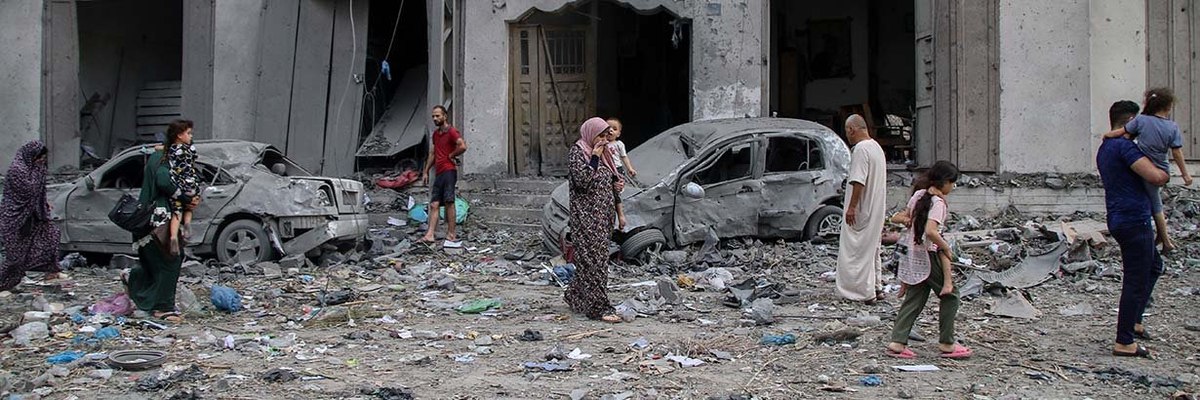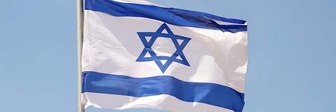Given the unimaginable horror of what is happening in the Middle East it might seem a little eccentric to devote this week’s debate to what some might regard as no more than a question of semantics. But I believe it’s much more than that. I refer, as you have probably guessed, to the BBC’s refusal to describe Hamas as terrorists. You are (I assume!) a licence fee payer and your view on this highly controversial decision matters. After all, without you and a few million more of you there could be no BBC. So where do you stand on this?
At first glance it seems bizarre even to raise the question. How can someone who deliberately murders and mutilates children to draw attention to their cause be described as anything other than a terrorist? The BBC’s answer is that to do so would compromise its impartiality. That, in itself, raises many questions. It was no less a figure than Lord Reith, the founding father of the BBC, who declared that the BBC was not impartial as between good and evil. And nobody could describe the murder of a child as anything other than evil. But Reith’s descendants, those who run the BBC today, argue that it’s rather more complicated than that.
The BBC’s editorial guidelines contain a section dedicated to Israel and the Palestinians which includes specific guidance around the use of the word “terror”. They note that it is a “difficult and emotive subject with significant political overtones”. Journalists are instructed not to use the term “terrorist” without attribution. That means they can use it only if they are quoting somebody else. Instead they are told to use words such as “bomber”, “attacker”, “gunman”, “kidnapper”, “insurgent” and “militant”.
The BBC accepts that this is a “difficult and emotive subject with significant political overtones” but says the word “terrorist” can act as a “barrier rather than an aid to understanding”. Instead, it uses the terminology “designated as a terror organisation by the UK and other governments”. One of its most prominent journalists, the world affairs editor John Simpson, agrees with that. He says adopting the term “terrorists” would compromise the BBC’s impartiality. He claims that British politicians “know perfectly well why the BBC avoids the word ‘terrorist’, and over the years plenty of them have privately agreed with it.”
Here’s how Simpson puts it: “Calling someone a terrorist means you’re taking sides and ceasing to treat the situation with due impartiality. The BBC’s job is to place the facts before its audience and let them decide what they think, honestly and without ranting. That’s why, in Britain and throughout the world, nearly half a billion people watch, listen to and read us.” The BBC, he insists, must “resist pressure from certain quarters to “rant”. He told his social media followers, “Sorry, that’s not what we do.” He did not specify who those “certain quarters” might be.
Another BBC journalist, who chose not to be named, defended the BBC’s description of Hamas as “the right formula”. He put it like this: “It’s a bit clunky but it’s the most objective way of looking at it. We need to make sure that we are as fact-based as possible”. He did not, apparently, dispute the “fact” that Hamas had murdered children.
A spokesman for the BBC said: “We always take our use of language very seriously. Anyone watching or listening to our coverage will hear the word 'terrorist' used many times – we attribute it to those who are using it, for example, the UK Government.”.
The BBC’s director of editorial policy David Jordan said not using the word terrorist was a very long-standing policy which had “stood the test of time”: 'We've called them massacres, we've called [them] murders, we've called them out for what things are and that doesn't in any way devalue the awfulness of what is going on. This is an approach that has been used for decades and is in line with that of other broadcasters.” The BBC’s editorial guidelines say terrorism is an emotive subject with significant political overtones and the word terrorist “can be a barrier rather than an aid to understanding”.
Another (unnamed) senior BBC news source criticised comments made by Lucy Frazer, the culture and media secretary thus: “It’s certainly inappropriate for government ministers to look to direct news organisations’ editorial policy… It’s [up to] the BBC to decide and she should leave well alone.” And a BBC spokeswoman said that there were no plans for its guidelines to be reviewed. She said: “We always take our use of language very seriously. Anyone watching or listening to our coverage will hear the word ‘terrorist’ used many times — we attribute it to those who are using it, for example, the UK government.
“This is an approach that has been used for decades and is in line with that of other broadcasters. The BBC is an editorially independent broadcaster whose job is to explain precisely what is happening ‘on the ground’ so our audiences can make their own judgment.”
Not only the audiences. Politicians, former BBC staff, lawyers and many other interested parties have already made that judgement – and it’s not one the BBC might have hoped for.
Lucy Frazer was one of many senior politicians who told the BBC to get its “moral compass out” and shift its stance. No fewer than seven former culture secretaries have written to the BBC director General Tim Davie with this warning: “The BBC’s commitment is to impartiality, not indifference. This distinction is now in danger of being blurred… Worryingly, the imprecise language of ‘fighters’ and ‘militants’ also serves to conflate terrorists with the Palestinian people, who suffer more than anyone from Hamas’s actions… We therefore add our voices to the mounting concerns about the BBC’s language around this terror group. It is time to urgently reassess your approach”.
The defence secretary Grant Shapps, said the BBC’s adherence to its style guide was “disgraceful” in light of the atrocities conducted by Hamas, which is proscribed as a terrorist organisation by the government. He put it like this: They are not freedom fighters, they are not militants, they are — pure and simple — terrorists. It’s remarkable to go to the BBC website and still see them talking about gunmen and militants and not calling them terrorists.” He dismissed the BBC’s insistence that it needs to set out “equivalence” with this comment: “They’ll always say there are two sides.”
The chief rabbi Sir Ephraim Mirvis has also called on broadcasters to urgently find their “moral compass” and describe Hamas as terrorists: ““Did decent, moral people seek to justify the actions of 9/11, 7/7 or the Manchester Arena bombing? It should be painfully obvious that there is no moral equivalence between those whose motive is to deliberately target innocent civilians in cold blood, and those whose motive is to remove the threat of such murderers. He acknowledged that the BBC’s guidelines “may be borne out of well-intentioned aspirations to appear accurate and impartial. But there is a point at which the failure to use the term ‘terrorist’, is itself a failure of accuracy and impartiality.”
Many former BBC luminaries agreed with that. Jon Sopel, the former BBC North America editor, said: “The guidelines that I followed for years are no longer fit for purpose and, sadly, have the effect of sanitising the actions of terrorists.”
And this from Danny Cohen, a former BBC director of TV: “There appears to be a diktat not to use the word ‘terrorism’ even when the acts being reported are terrorism of the most egregious and barbaric kind as if shooting children in cold blood is some part of conventional military warfare. It is nothing of the sort. It is murder, pure and simple. It is terrorism.”
“This is an approach that has been used for decades, and is in line with that of other broadcasters. The BBC is an editorially independent broadcaster whose job is to explain precisely what is happening ‘on the ground’ so our audiences can make their own judgment. I can’t argue with that. Obviously. And I agree that the BBC’s coverage has been good – very good.
“But there’s something horribly jarring (to my ears) with presenters interviewing British politicians (of all parties) who use ‘terrorists’ in every other sentence and use all manner of circumlocutions to eschew it. My problem is that it makes it sound as if the BBC is neutral. And it’s not is it? Not between good and evil. And what Hamas did was evil by any common sense use of the word wasn’t it?
That question got a similar response from both the prime minister and the man who may very well take over from him next year. Here’s how Rishi Sunak’s views were described by a Number Ten source: “Hamas are not militants, they are terrorists. It is incumbent on our national broadcaster to recognise this fact.” And here’s how Sir Keir Starmer put it: “The BBC needs to explain why it isn’t the term terrorist. To me that’s obviously what we are witnessing.”
So there is no doubt that the so-called “establishment” is deeply concerned. Some of the most eminent lawyers in the land have written to the chairman of Ofcom to say that the BBC is being anything but impartial in avoiding the word terrorism. They argue that the crimes perpetrated in Israel by Hamas satisfy the terms of our own Terrorism Act 2000. They conclude that by using “watered down” terms as a substitute for terrorism, the BBC is being the opposite of impartial. It is being sympathetic to Hamas in a way not justified by its legal status. The BBC is, in effect, “cloaking the evils committed by Hamas in euphemism.”
But there’s something that’s far more important to the BBC than the views of legal eagles or even politicians. And that’s what YOU think: the people who pay the licence fee and without whose support it becomes effectively irrelevant and eventually redundant. This may be one of those moments in its long history when we have to ask ourselves: does the BBC still occupy the moral high ground.
Well… does it? Let us know what you think.








